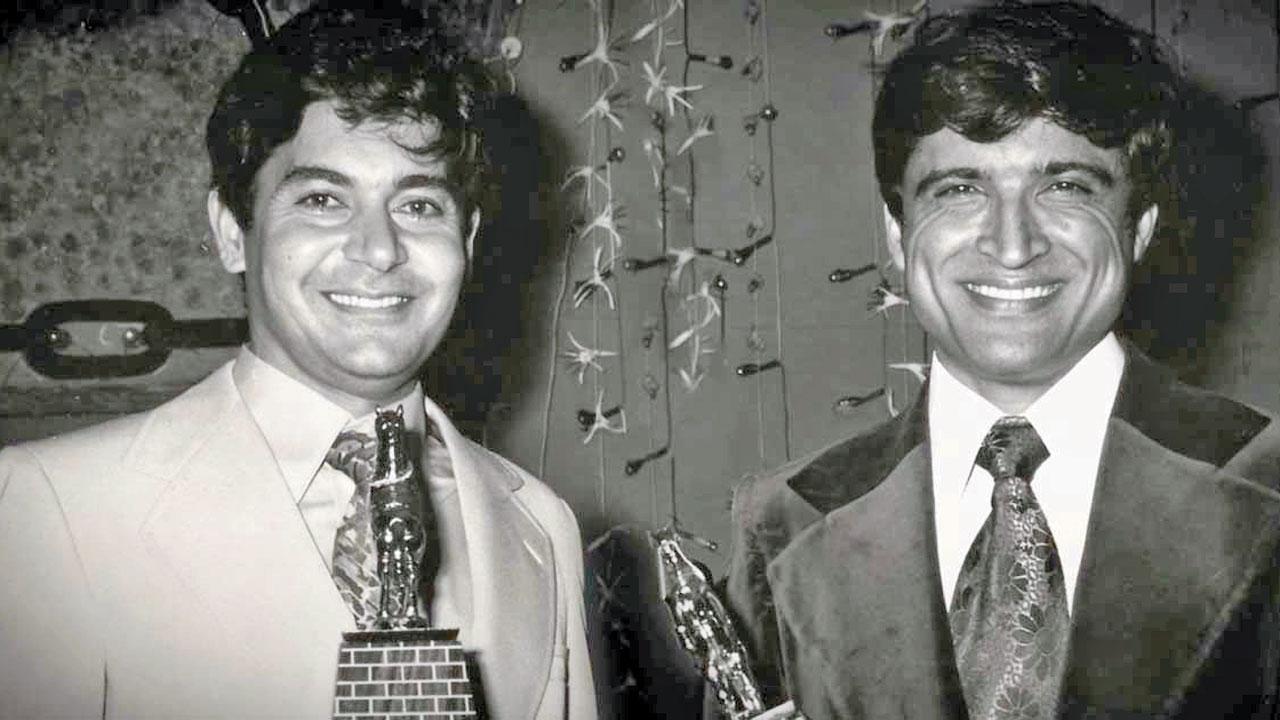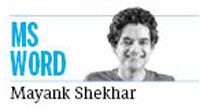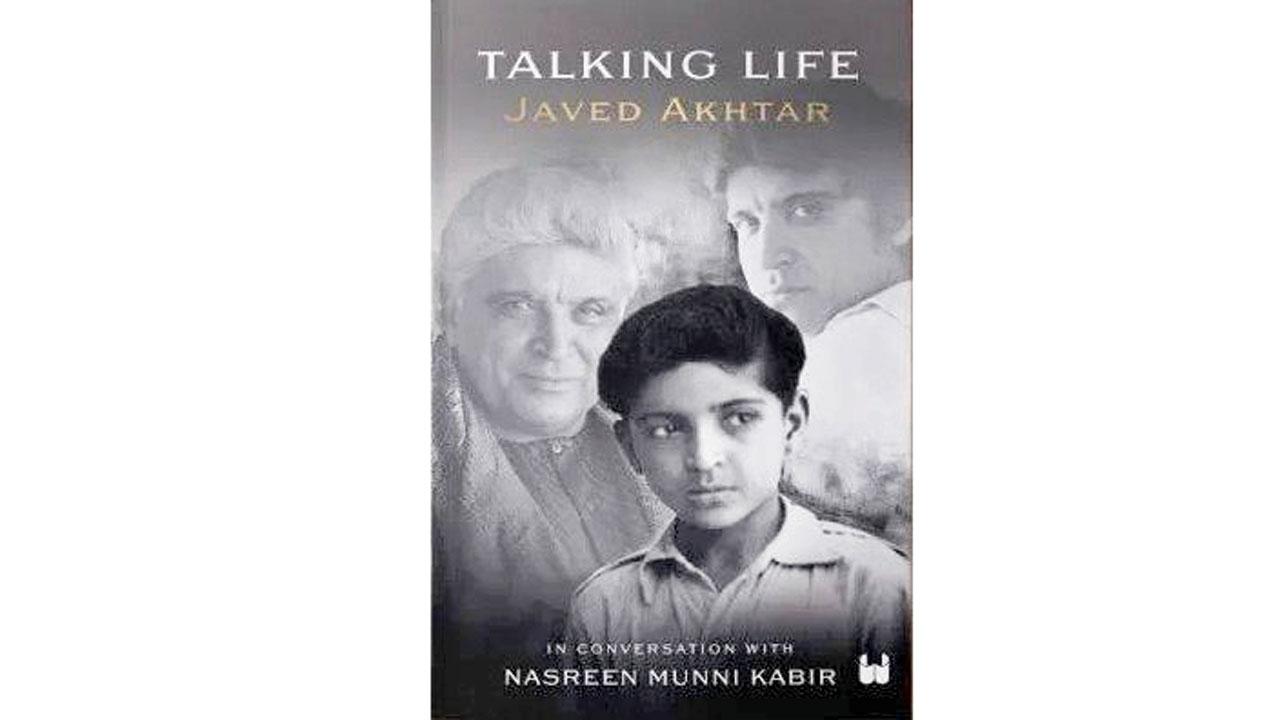What’s it about the split between Bollywood’s highest paid screenwriting pair that nobody could duplicate that success?

A still from the Amazon Prime Video documentary series Angry Young Men
 In the book, Talking Life (2023), which is writer Javed Akhtar, 78, in conversation with Nasreen Munni Kabir, Javed defines old age—it’s always ten years ahead of you. Meaning, if you’re 15, you think 25 is old age, and so on and so forth.
In the book, Talking Life (2023), which is writer Javed Akhtar, 78, in conversation with Nasreen Munni Kabir, Javed defines old age—it’s always ten years ahead of you. Meaning, if you’re 15, you think 25 is old age, and so on and so forth.
ADVERTISEMENT
In that respect, Javed’s screenwriting partner for 11 years, Salim Khan, was almost exactly a decade older than him.
And as Javed puts it in Namrata Rao’s telling, timely, brilliant documentary series, Angry Young Men (on Amazon Prime Video), he saw Salim as a parental figure. While they were surely equals at the writing table.
Javed’s filmmaker daughter, Zoya, rightly informs in the series that Salim-Javed together wrote 24 screenplays, of which 22 were blockbusters. Something that has no precedence, and won’t have a follow-up, either.
An equally fine screenplay is evidently their lives itself. And that organically showed up in their entertaining, mainstream takes onscreen.
Both lost their mothers early. Left small towns, to rough it out on Bombay’s streets/studios—never once seeking support from home/extended family. Broke, but never broken.

For a world-view, it’s remarkable how often they separately mirror each other. And I impulsively click on any interview I find of either online.
Ask Salim, “What helps with writing the most?” Reading. “Chain reader” Javed echoes, “Reading is the riyaaz of writing!” What about vital ingredients for success? Javed: “Talent, discipline, self-respect”. Salim concurs, “Talent and discipline are usually hard to find in the same person.”
What uniquely unites these writerly giants of ’70s big screen, with strongly progressive values, though, is actually, sense of humour.
For all their projection of the ‘angry young man’, these top-class conversationalists are genuinely funny, witty men. Even in the brashness/arrogance of youth.
Which was probably just their swag/chutzpah to break through Bollywood, as writers—otherwise considered low in the industrial food-chain.
Hence, demanding reverence, through irreverence—shattering ceilings for salaries, asking for impossible sums; and credit, through their own paint-brush, stencil, over posters of Zanjeer (1973)!
The unlikely super-hit Zanjeer is, of course, what truly made Salim-Javed, and visually rebirthed Amitabh Bachchan. Bachchan, as a superstar born, naturally got attached to the writing duo.
Salim-Javed, in turn, graduated to makers of projects—casting for Gabbar (Amjad Khan), let alone pushing for Big B, bringing Raj Babbar into Bollywood, Smita Patil into the mainstream…
There was box-office gold at the finishing line of their bound scripts. Screenwriters since Salim-Javed haven’t wielded the same power.
Because stars hardly align this smoothly. Most writers in Hindi cinema, I know, would rather be directors, or showrunners. There is possibly greater fame, hence access, and dignity there.
Of the two, who actually wrote, is a question movie-buffs have always wondered. Decades hence, Javed makes this clear in Nasreen’s book. Dialogues was Javed’s department. Story-outline came from Salim.
Together, they worked on screenplay. That’s the narration, or andaaz-e-bayaan, right—what you get paid for! A stenographer keyed in script from scribbled sheets. Gracious Javed further adds, the ‘angry young man’, in that sense, was Salim’s conception.
Barring such details, most of Salim-Javed’s life is rather well-known. What is it that attracts us to the sharply edited (Geeta Singh), smartly shot, Angry Young Men, produced by their children, then? I’ve watched it twice, already. Well, foremost, movie-nostalgia max; what else?
Even frames with Helen talking! You’ve gotta be a Bombay journalist to know how rare that is. Helen met the then actor, Salim (future husband), on the set of Kabli Khan (1963), where she was the heroine, and he was the villain! They only got closer during Don (1978).
There’s also Salim-Javed’s mother-figure, Nirupa Roy—who passed away in 2004, while I didn’t spot mention of this in the series—appearing as if in a fresh interview.
The rarest sight, however, is Javed himself, breaking down—over the meaty matter of five-star hotel breakfasts, that he’s used to now, but wonders if he deserves them still!
A revealing moment is when Javed confesses to a writer’s block, once he split up with Salim—who used to put story-outlines on the table, after all. Javed considered leaving town, starting life anew, assuming another name and profession, as “Shyam Sundar”, or some such!
This silent separation of Salim-Javed is obviously the elephant in the writers’ room. It’s not exactly the point of the documentary. As against the similarly leader-follower, Leander Paes-Mahesh Bhupathi split, in the remarkably detailed doc series, Break Point (2021).
Undoubtedly, it was Javed who walked away. Salim simply did not see it coming; apparently.
He says their last two films together, Shakti (Tamil remake), and Mr India (that Javed finished off on his own) were, in fact, theatrical hits.
Can’t deny.
That said, in Nasreen’s book, Javed speaks of two scripts he left behind with Salim, upon parting ways—Kaali, a dacoit-drama, that’s lost its relevance now; and Sailaab, that went straight to TV, as Yeh Majhdhaar, with Salman Khan.
In Angry Young Men, Javed admits that, besides them socially drifting apart as well, “The major reason [for the split] was the career-spring drying up; kaam mein thakan [tiredness showing in
the work].”
Salim-Javed had a techni-colour dream-run for over a decade. Which is already a long time in showbiz—sadly, for them, and us, of course.
Mayank Shekhar attempts to make sense of mass culture. He tweets @mayankw14
Send your feedback to [email protected]
The views expressed in this column are the individual’s and don’t represent those of the paper.
 Subscribe today by clicking the link and stay updated with the latest news!" Click here!
Subscribe today by clicking the link and stay updated with the latest news!" Click here!







